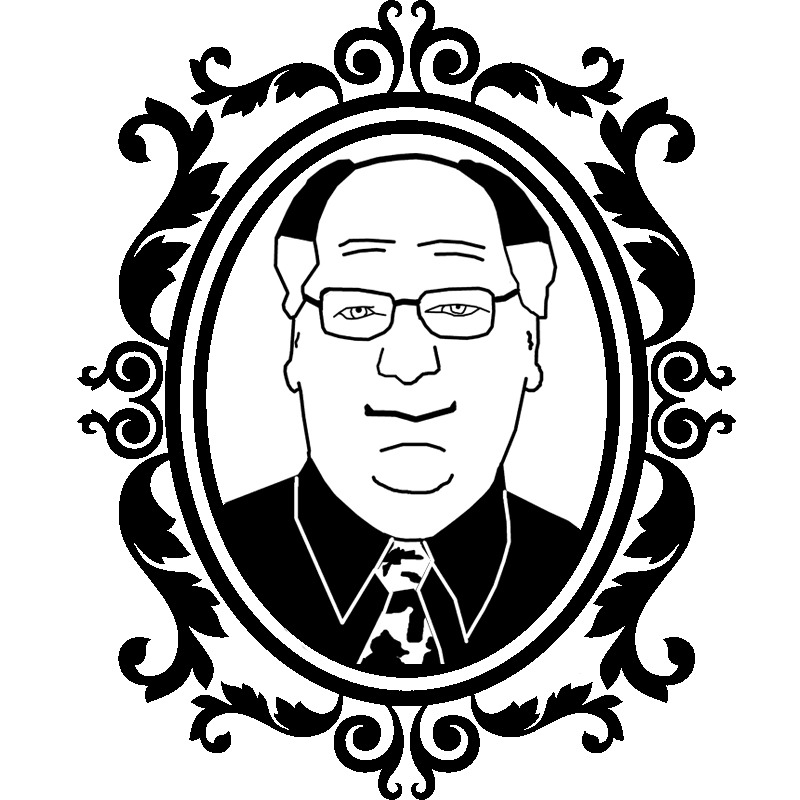Who Was Jason Robards? A Look at His Life and Legacy

Jason Robards delivering a powerful performance in one of his most iconic roles.
Jason Robards was born on July 26, 1922, in Chicago, Illinois, to Jason Robards Sr. and Hope Maxine Robards. His father was a stage and film actor, which exposed young Jason to the world of entertainment at an early age. However, his parents' marriage was turbulent, and the family relocated multiple times before settling in Los Angeles, California. Despite his father's career in acting, Robards initially showed little interest in following the same path.
This article explores Jason Robards’ most memorable movie roles—from his memorable turn as the whispered informant in All the President’s Men to his commanding presence in Once Upon a Time in the West. You show how his layered, steady performances defined complex characters and brought a quiet strength that endured across decades of cinematic storytelling.
After graduating from Hollywood High School in 1940, Robards enlisted in the United States Navy, where he served as a radioman during World War II. He was stationed aboard the USS Northampton, a heavy cruiser that was sunk during the Battle of Tassafaronga in 1942. Robards was among the survivors who spent hours in the ocean before being rescued. He later served on the USS Nashville, surviving another attack near the Philippines. His time in the military shaped his discipline and resilience, though it was a far cry from the career he would later pursue.
Following his discharge, Jason Robards took advantage of the G.I. Bill to study at the American Academy of Dramatic Arts in New York. He had developed a newfound interest in acting, inspired in part by his father’s legacy. Like many aspiring actors of his generation, he started with radio work and small theater productions before landing more substantial roles. His early years were marked by financial struggles, but he remained determined to succeed.
Jason Robards gained recognition in the 1950s through his work in off-Broadway productions, particularly in plays by Eugene O’Neill. His breakout role came in The Iceman Cometh, where he delivered a powerful performance as Hickey. This role cemented his reputation as a serious stage actor, leading to further opportunities in television and film. While his early career was slow to build, his talent and dedication set the stage for a remarkable career ahead.
Jason Robards was one of Hollywood’s hardest-working and most respected actors, a true craftsman who dedicated himself fully to every role. Whether sharing the screen with legends like Paul Newman in Buffalo Bill and the Indians, Henry Fonda in Once Upon a Time in the West, or Kirk Douglas in The War Wagon, Robards brought an intensity that made him unforgettable. He wasn’t just another leading man—he was a real character actor, someone who disappeared into his roles and made them feel lived-in and authentic. From playing the grizzled journalist Ben Bradlee in All the President’s Men alongside Robert Redford and Dustin Hoffman to embodying Dashiell Hammett in Julia, opposite Jane Fonda and Vanessa Redgrave, he had a way of making every character utterly believable.
He wasn’t about flashy performances or stealing scenes—he simply was the character. Robards’ ability to fully immerse himself in his roles was reminiscent of other greats like Spencer Tracy and Lee J. Cobb, actors who could command attention without ever feeling like they were trying too hard. When he took on a part, whether it was as Abraham Lincoln in The Perfect Tribute or as a whiskey-soaked gambler in Magnolia, you could feel the weight of his preparation and dedication. His deep, gravelly voice and world-weary presence gave his performances a gravity that few actors could match. He wasn’t just performing—he was living in those moments.
Jason Robards is one of those rare actors who, when you see one of his performances, you can truly appreciate the craft and hard work that went into it. He approached every role, no matter how large or small, with the same level of care, whether he was playing Howard Hughes in Melvin and Howard or taking on a supporting role in Philadelphia opposite Tom Hanks. He didn’t just play historical figures like Ulysses S. Grant in The Civil War miniseries—he became them, making them feel as flesh-and-blood as the people watching. His collaborations with directors like Sidney Lumet, Sam Peckinpah, and Alan J. Pakula further cemented his status as one of the industry's most reliable and versatile actors.
There was an old-school quality to Robards that made him stand out even in the golden age of Hollywood. He was cut from the same cloth as actors like Robert Mitchum and William Holden—tough, no-nonsense, and effortlessly cool. But unlike some of his contemporaries, he didn’t need to play the hero to leave an impression. His characters had flaws, rough edges, and layers of complexity that made them human. And that’s why, decades after his most iconic performances, Jason Robards’ work still resonates.
Explore the Biographies of Iconic Celebrities
The 5 Best Jason Robards Movie Roles – Unforgettable Performances
Movie: All the President’s Men (1976)
Role: Ben Bradlee
All the President’s Men (1976) features one of Jason Robards’ most commanding performances, solidifying his place among Hollywood’s elite character actors. His portrayal of Washington Post editor Ben Bradlee is not just a highlight of the film—it’s a career-defining role that earned him an Academy Award for Best Supporting Actor. Sharing the screen with Robert Redford and Dustin Hoffman, who played the legendary journalists Bob Woodward and Carl Bernstein, Robards brought a perfect mix of toughness, charm, and unshakable integrity to the role. His Bradlee is a newsroom titan, pushing his reporters to dig deeper into the Watergate scandal, all while navigating the intense political pressure of the time.
All the President’s Men tells the gripping true story of how Woodward and Bernstein uncovered the details of the Watergate break-in, ultimately leading to President Richard Nixon’s resignation. The film, directed by Alan J. Pakula and written by William Goldman, is a masterclass in investigative journalism on screen, with tension that builds even when much of the action involves little more than reporters making phone calls and chasing down leads. Robards, in particular, brings a magnetic presence to every scene he’s in, whether he’s barking orders in the newsroom or subtly conveying the weight of responsibility on his shoulders.
This is a movie filled with great performances, from Hal Holbrook’s mysterious Deep Throat to Jack Warden and Martin Balsam as fellow editors at The Washington Post. But Robards stands out, perfectly capturing Bradlee’s mix of authority and wit, his quick one-liners balancing the high stakes of the investigation. His chemistry with Redford and Hoffman is electric, making every newsroom exchange feel authentic and charged with urgency. His ability to command a scene without ever overplaying it is a testament to his skill—Bradlee isn’t just a boss, he’s the backbone of the entire operation, and Robards makes sure you never forget it.
If you love Jason Robards, you’ll love him here as the fearless, sharp-tongued editor who refuses to let power or politics stand in the way of the truth. His performance elevates an already brilliant film, making it one of the best portrayals of journalism ever put on screen. Whether you’re a fan of political thrillers, historical dramas, or just great acting, All the President’s Men is essential viewing, and Robards’ Ben Bradlee remains one of the most memorable figures in cinematic history.
Movie: The Night They Raided Minsky’s (1968)
Role: Raymond Paine
Jason Robards plays the smooth-talking, quick-witted Raymond Paine in this hilarious and charming comedy, proving once again just how versatile he was as an actor. Known for his serious, hard-hitting performances in films like Long Day’s Journey Into Night and All the President’s Men, Robards effortlessly shifts gears here, delivering a performance full of humor and charisma. Starring alongside the legendary Bert Lahr—best known as the Cowardly Lion in The Wizard of Oz—and the always delightful Norman Wisdom, Robards anchors the film with his sharp comedic timing and world-weary charm.
This lively and colorful film tells the story of Rachel Schpitendavel, a sheltered Amish girl, played by the sweet and wide-eyed Britt Ekland, who arrives in New York City dreaming of becoming a dancer. What she doesn’t realize is that her innocent, wholesome routines aren’t exactly a natural fit for Billy Minsky’s Burlesque. Robards, as Paine, plays one half of the comedic duo running the show, constantly finding himself caught between showbiz chaos and his own schemes. His interactions with Wisdom’s character, Chick Williams, provide some of the film’s best laughs, as the two of them try to navigate the madness of burlesque, prohibition-era shenanigans, and a show that doesn’t quite go as planned.
Adding to the film’s magic is the nostalgic and authentic portrayal of the 1920s burlesque scene, brought to life with a fantastic supporting cast that includes Elliott Gould and Forrest Tucker. The legendary burlesque queen herself, Ann Corio, served as a consultant, ensuring the film captured the spirit of the era. The movie also holds historical significance, as it was Bert Lahr’s final film—he passed away before production wrapped, making his performance all the more memorable.
This is a very funny and cleverly written film that will surely give you a chuckle, with Jason Robards proving he could do comedy just as well as he could drama. His chemistry with the cast, especially Ekland and Wisdom, keeps the film moving at a lively pace, making The Night They Raided Minsky’s a must-watch for fans of classic comedies, burlesque history, and, of course, Jason Robards himself.
Movie: Once Upon a Time in the West (1968)
Role: Cheyenne
Jason Robards takes on one of the most memorable roles of his career as the rugged yet charismatic bandit Cheyenne in Sergio Leone’s epic western Once Upon a Time in the West. Starring alongside cinematic icons like Henry Fonda, Charles Bronson, and Claudia Cardinale, Robards delivers a performance that perfectly balances grit, humor, and unexpected depth. In a film filled with mythic figures, Cheyenne stands out as a complex and strangely endearing outlaw—a man who may be rough around the edges but ultimately has a strong moral code.
This sprawling western, often considered Leone’s masterpiece, tells the story of a mysterious gunman known only as Harmonica (played by Bronson) and his quest for revenge against the ruthless hired gun Frank, chillingly portrayed by Henry Fonda in a rare villainous turn. At the heart of it all is Claudia Cardinale’s character, Jill McBain, a widow caught in the middle of a power struggle over valuable land. Jason Robards’ Cheyenne, initially introduced as an outlaw on the run, gradually becomes an unlikely ally, adding both heart and humor to the film’s grim tale of revenge and survival.
Jason Robards performance is nothing short of brilliant, holding his own alongside some of the greatest actors of the era. His chemistry with Bronson is particularly strong, as their characters develop an uneasy yet compelling friendship. The way Cheyenne interacts with Cardinale’s Jill—showing both a roguish charm and genuine respect—adds further layers to his character. Unlike many western outlaws, Cheyenne isn’t just a hardened killer; Robards plays him with a wit and warmth that make him one of the film’s most engaging figures.
Once Upon a Time in the West is an absolute classic, often hailed as one of the greatest westerns ever made. In 2009, it was added to the National Film Registry for its cultural, historical, and aesthetic significance, ensuring it will be preserved for future generations. Robards’ performance as Cheyenne remains one of the film’s most beloved elements, proving once again his ability to bring depth and humanity to every role he played.
Movie: Julia (1977)
Role: Dashiell Hammett
Jason Robards delivers yet another masterful performance as famed writer Dashiell Hammett in Julia (1977), a gripping historical drama based on the memoirs of playwright Lillian Hellman. Sharing the screen with two of the most celebrated actresses of the era, Jane Fonda as Hellman and Vanessa Redgrave in the title role, Robards brings a commanding presence to the film, embodying Hammett with his signature blend of world-weariness and wisdom. His portrayal of the legendary The Maltese Falcon author adds an extra layer of gravitas to an already emotionally charged story.
The film follows Hellman’s deep and complex friendship with Julia, a woman deeply involved in anti-fascist resistance efforts in 1930s Europe. When Julia asks Lillian to smuggle money across Nazi-occupied territory to help fund the underground movement, Hellman is forced to confront the true dangers of political activism. While Robards’ Hammett doesn’t take center stage in the film’s central plot, his presence as Lillian’s mentor, lover, and unwavering source of support is invaluable. His gravelly voice and measured delivery lend authenticity to the role, capturing the essence of Hammett as both a literary giant and a deeply flawed but influential figure in Hellman’s life.
Jason Robards performance in Julia was subtle yet powerful, reinforcing his reputation as an actor who could make a lasting impact even with limited screen time. He provides a stark contrast to the film’s central suspense and political intrigue, grounding the story with moments of wisdom, wit, and even tenderness. His interactions with Fonda are particularly memorable, as he balances tough love with genuine admiration for Hellman’s growing confidence as a writer and activist. It’s another testament to Robards’ ability to elevate a film through sheer presence and authenticity.
Directed by Fred Zinnemann, Julia was met with critical acclaim and went on to win three Academy Awards, including Best Supporting Actor for Robards—his second Oscar in as many years following All the President’s Men. His portrayal of Hammett, though not the primary focus of the film, remains a highlight, proving once again that Jason Robards had the rare ability to bring depth and humanity to every character he touched.
Movie: Melvin and Howard (1980)
Role: Howard Hughes
Jason Robards delivers a brief but unforgettable performance as reclusive billionaire Howard Hughes in Melvin and Howard (1980), a quirky and heartfelt film that blends comedy and drama with a touch of American folklore. Though his screen time is limited, Robards' portrayal of Hughes in the film’s opening sequence sets the tone for the entire story. Sharing the screen with Paul Le Mat as Melvin Dummar, a struggling, down-on-his-luck everyman, Robards perfectly captures the eccentricity and mystery surrounding Hughes in his later years.
The film, directed by Jonathan Demme, follows Melvin Dummar’s incredible (and widely disputed) claim that he once picked up an elderly, disheveled Hughes in the Nevada desert and gave him a ride to Las Vegas. Robards plays Hughes with a quiet, almost ghostly presence, his raspy voice and weary eyes hinting at the immense wealth, paranoia, and loneliness that defined the real-life figure. It’s a performance that avoids caricature, instead portraying Hughes as a fragile but still sharp-witted man who enjoys Melvin’s unfiltered personality and simple kindness.
Robards' Hughes disappears early in the film, but his presence lingers throughout as the story follows Dummar’s later struggles and his shocking discovery of a supposed will leaving him a fortune. His chemistry with Paul Le Mat in their brief but crucial scenes is magnetic, making their strange encounter feel oddly believable. Robards’ naturalistic acting style, honed over decades of playing complex and layered characters, makes his Hughes feel more like a real man than a larger-than-life legend, adding credibility to the film’s central mystery.
Though Melvin and Howard is largely Paul Le Mat and Mary Steenburgen’s film—Steenburgen even won an Oscar for her role as Melvin’s wife—Robards' performance is a standout, reminding audiences once again of his ability to steal a scene with just a few well-placed lines and a look that says more than words ever could. The film itself was widely acclaimed, earning multiple Academy Award nominations and solidifying its place as one of the great offbeat gems of the early ‘80s.
Further Reading Resources
📖 Read: Jason Robards Remembered: Essays and Recollections

ML Lamp is the owner of Kilroy Was Here. After his 20 years of working in Las Vegas in the entertainment promotions field, Mr. Lamp retired in 2002 from his job to pursue his passion for collectibles. Now as a guest speaker and author he’s living the dream, and sharing his warmth with You.










